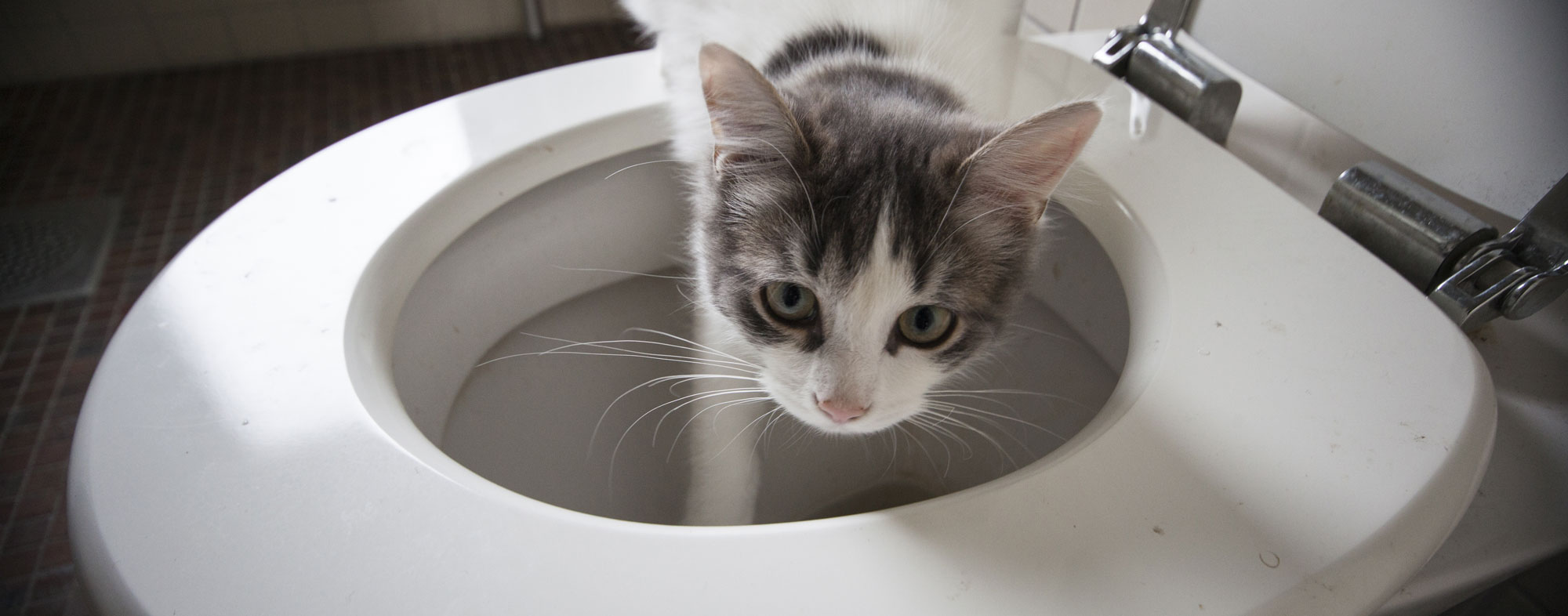They are making a few great points regarding Don’t flush cat feces down the toilet overall in this article down the page.

Intro
As pet cat owners, it's vital to bear in mind how we deal with our feline pals' waste. While it might seem convenient to flush cat poop down the bathroom, this technique can have destructive effects for both the environment and human health.
Environmental Impact
Purging cat poop presents unsafe pathogens and parasites into the water supply, positioning a significant risk to aquatic communities. These pollutants can adversely influence aquatic life and concession water quality.
Health Risks
Along with environmental worries, purging pet cat waste can likewise present health and wellness risks to human beings. Pet cat feces might consist of Toxoplasma gondii, a bloodsucker that can create toxoplasmosis-- a possibly serious disease, particularly for expectant ladies and people with damaged body immune systems.
Alternatives to Flushing
Luckily, there are more secure and a lot more liable means to deal with cat poop. Consider the adhering to choices:
1. Scoop and Dispose in Trash
One of the most typical method of taking care of feline poop is to scoop it into a biodegradable bag and toss it in the trash. Be sure to make use of a specialized litter scoop and dispose of the waste promptly.
2. Use Biodegradable Litter
Opt for biodegradable cat clutter made from products such as corn or wheat. These clutters are environmentally friendly and can be securely gotten rid of in the garbage.
3. Hide in the Yard
If you have a yard, take into consideration hiding feline waste in a designated location far from vegetable gardens and water sources. Make certain to dig deep sufficient to stop contamination of groundwater.
4. Set Up a Pet Waste Disposal System
Buy an animal waste disposal system especially made for feline waste. These systems make use of enzymes to break down the waste, decreasing odor and ecological effect.
Conclusion
Accountable pet dog ownership extends beyond giving food and sanctuary-- it likewise includes appropriate waste monitoring. By refraining from flushing cat poop down the bathroom and choosing alternate disposal methods, we can reduce our ecological footprint and protect human health and wellness.
Why Can’t I Flush Cat Poop?
It Spreads a Parasite
Cats are frequently infected with a parasite called toxoplasma gondii. The parasite causes an infection called toxoplasmosis. It is usually harmless to cats. The parasite only uses cat poop as a host for its eggs. Otherwise, the cat’s immune system usually keeps the infection at low enough levels to maintain its own health. But it does not stop the develop of eggs. These eggs are tiny and surprisingly tough. They may survive for a year before they begin to grow. But that’s the problem.
Our wastewater system is not designed to deal with toxoplasmosis eggs. Instead, most eggs will flush from your toilet into sewers and wastewater management plants. After the sewage is treated for many other harmful things in it, it is typically released into local rivers, lakes, or oceans. Here, the toxoplasmosis eggs can find new hosts, including starfish, crabs, otters, and many other wildlife. For many, this is a significant risk to their health. Toxoplasmosis can also end up infecting water sources that are important for agriculture, which means our deer, pigs, and sheep can get infected too.
Is There Risk to Humans?
There can be a risk to human life from flushing cat poop down the toilet. If you do so, the parasites from your cat’s poop can end up in shellfish, game animals, or livestock. If this meat is then served raw or undercooked, the people who eat it can get sick.
In fact, according to the CDC, 40 million people in the United States are infected with toxoplasma gondii. They get it from exposure to infected seafood, or from some kind of cat poop contamination, like drinking from a stream that is contaminated or touching anything that has come into contact with cat poop. That includes just cleaning a cat litter box.
Most people who get infected with these parasites will not develop any symptoms. However, for pregnant women or for those with compromised immune systems, the parasite can cause severe health problems.
How to Handle Cat Poop
The best way to handle cat poop is actually to clean the box more often. The eggs that the parasite sheds will not become active until one to five days after the cat poops. That means that if you clean daily, you’re much less likely to come into direct contact with infectious eggs.
That said, always dispose of cat poop in the garbage and not down the toilet. Wash your hands before and after you clean the litter box, and bring the bag of poop right outside to your garbage bins.
https://trenchlesssolutionsusa.com/why-cant-i-flush-cat-poop/

I found that piece of writing about Don’t flush cat feces down the toilet while surfing the web. Those who appreciated our blog posting kindly don't forget to pass it around. Thanks a lot for your time invested reading it.
Call Today